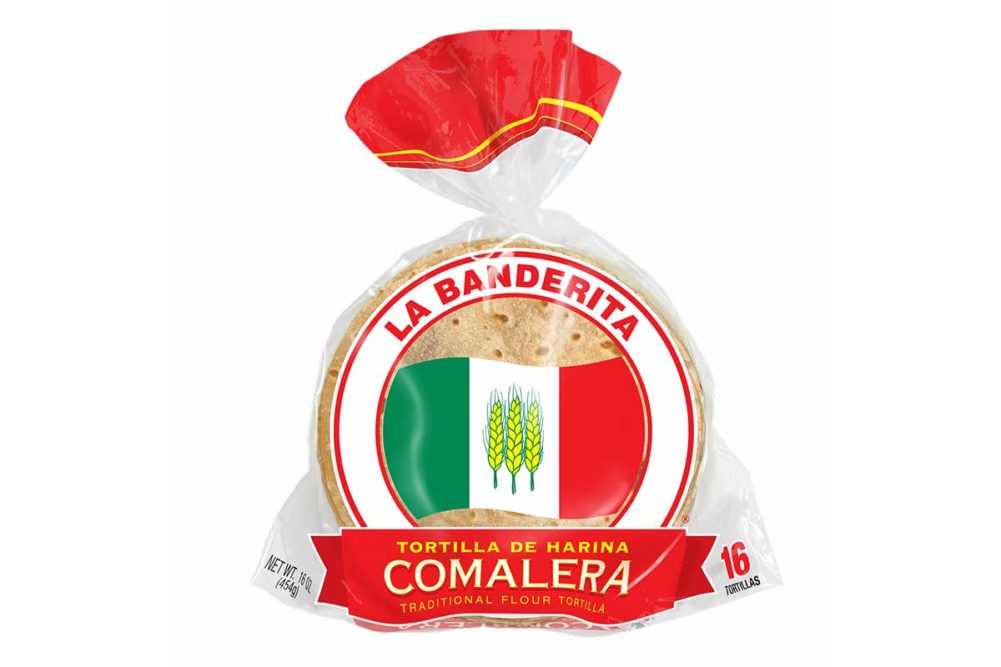Despite the rebound in restaurant sales over the past year, sales of tortillas and flatbreads remain strong in the retail channel while unit sales slipped only slightly.
That’s surprised many industry experts like Jim Kabbani, chief executive officer, Tortilla Industry Association.
“During COVID, restaurants were running on fumes,” he recalled. “A lot of that business was greatly reduced, and people were buying their tortillas from retail outlets instead. The assumption was that once the pandemic got under control and people started going back to restaurants that the business would shift back to the way it was before the pandemic. But it stayed robust in the retail category while, at the same time, recovering in the restaurant channel.”
Overall sales of hard and soft tortillas and taco kits jumped 13.6% to $3.67 billion, according to data by Circana, formerly IRI and NPD, for the 52 weeks ending Jan. 29, 2023.
Although unit sales slipped 0.6%, tortillas and taco kits are performing better than other food categories, which have seen steeper declines in units as inflation takes its toll on consumer spending habits.
In fact, Melissa Altobelli, principal in client insights for dairy and bakery for Circana, suggested that tortilla sales could benefit if supply chain issues subside.
“In general, ingredients have been a challenge for tortilla and flatbread makers, just like for bread and anything else, but with unit sales being relatively flat, the category was able to overcome those challenges,” she said.
On the other hand, flatbread sales vary depending on product variety and where they are purchased in the store.
Circana reported that the center store wraps and flatbreads category rose 2.3% to $238.9 million, while units tumbled 9.6% from a year ago.
Specifically, the largest segment in the center store is pita bread, which increased 5.9% to $91.5 million while wraps fell 3.0% to $90.9 million. Flatbreads and naan make up the remaining smaller segments. Flatbreads were actually the only segment to show unit sales growth in the center store, driven by low-carb options, Ms. Altobelli said.
The story is much different for the perimeter store wraps and flatbreads category, which jumped 13% to $315.7 million, while unit sales inched up 0.6%, according to Circana.
In the perimeter, sales of naan soared 19.3% to $175.7 million, mainly fueled by the Stonefire line of flatbreads and naan, owned by Toronto-based FGF Brands, Ms. Altobelli noted.
Additionally in the perimeter, pita sales rose 10.1% to $54.2 million, while smaller perimeter segments such as flatbreads, fresh tortillas and all other wraps/flatbreads had mixed performances.
In general, Ms. Altobelli said, tortilla and flatbread sales reflect the performance of the overall bakery category, which saw sales rise 15.7% in January, while unit sales dipped slightly.
Mass merchandising and club store channels are gaining share in tortillas and flatbreads similar to what researchers are seeing in the total food and beverage market. Consumers are seeking value that mass merchandisers and club stores provide with larger pack sizes typically selling for less on a per-ounce basis.
Mr. Altobelli added that about 50% of the growth in center store tortilla sales can be attributed to better-for-you (BFY) products, primarily low-carb, low-calorie and high-fiber items.
However, keep in mind that BFY tortillas only account for about 16% of sales from the major brands in this market and include such items as Mission Carb Balance from Mission Foods, Irving, Texas, and Flatout Carb Down from the Flatout Group, Mundelein, Ill., among others.
Olé Mexican Foods also plays in the BFY market in a big way. Its La Banderita Carb Counter, for instance, is low in carbohydrates, has a similar taste to a traditional tortilla and is certified keto by a third party, which is key for establishing trust with consumers, noted Enrique Botello, senior marketing director, Olé Mexican Foods, Norcross, Ga.
“La Banderita Carb Counter is for those people who want to lose weight for a period of time,” he noted. “They may be following the keto diet for four or six months. When people are on the keto diet, they are very strict. They are buying only keto products. Obviously, they want the best-tasting tortilla but one that is low in carbs, and they find that with La Banderita Carb Counter.”
Moreover, the company’s Olé Xtreme Wellness products are whole wheat tortillas that are high in fiber and low in carbs.
“Consumers who are looking for this tortilla are people whose whole lifestyles are about wellness,” Mr. Botello said. “They are looking for the best option for all their meals. They really like this tortilla because it’s high in fiber. It helps with digestive health, and it’s also low in carbs.”
These consumers, he added, tend to cook with ingredients like extra virgin olive oil or turkey bacon. Shoppers who are over 50 also look at fiber as a digestive aid, while younger consumers in their 20s prefer fiber for its prebiotic benefits.
For its part, Toufayan Bakeries rolled out keto flatbread, pita and wraps last year in response to the popularity of the diet. The Ridgefield, NJ-based company also offers a host of other BFY products that are organic, vegan, low sodium and gluten-free.
“We have received even better than anticipated reactions to our keto breads. From ingredients to taste and texture, our keto line is receiving rave reviews from influencers on social media and on Amazon,” said Karen Toufayan, vice president of marketing and sales, Toufayan Bakeries.
“The keto diet has been around more than 30 years, with 2017 bringing a spike in interest that continues today,” she explained. “As consumers look to packaged foods to fill their specialty diet needs, I would look at offering these products as more of a necessary ‘new normal’ to stay ahead of the curve with product development as a trend.”
This article is an excerpt from the April 2023 issue of Baking & Snack. To read the entire feature on Tortillas & Flatbreads, click here.





